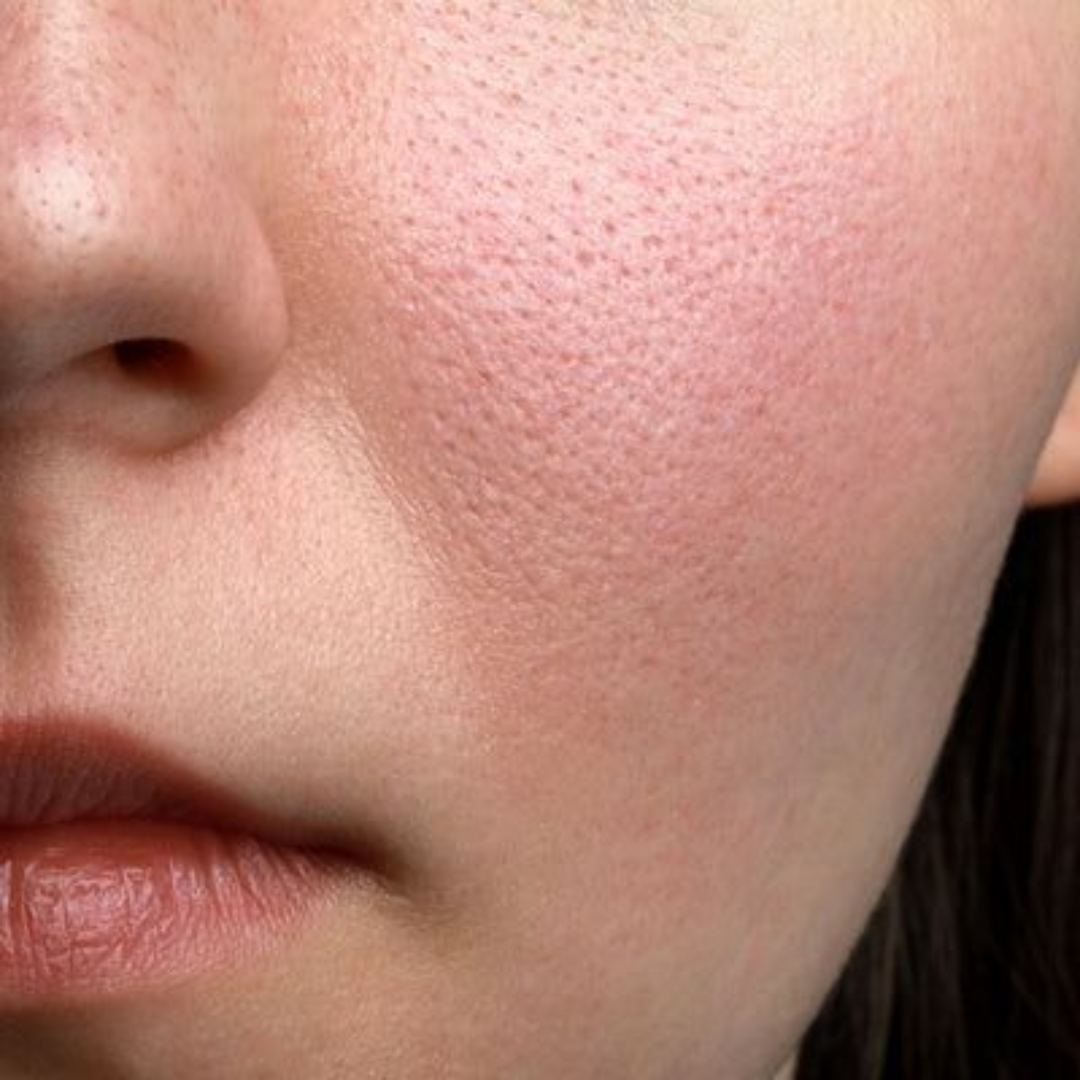
What causes pores to dilate?
Share
Enlarged pores are a common concern for many people, giving the skin an uneven, rough or shiny appearance. Although natural and essential for respiration and sebum production, pores can become visible and unsightly when enlarged. Understanding the causes of enlarged pores is essential to adopting a suitable routine and limiting their appearance.
1. What is a dilated pore?
Pores are small openings on the skin's surface through which sebum and sweat are expelled. Each pore is connected to a hair follicle and a sebaceous gland.
Pore dilatation corresponds to a visible enlargement of these openings. It is often associated with :
-
Excess sebum.
-
Accumulation of dead cells and impurities.
-
Loss of skin tone and elasticity.
Dilated pores are most common on the nose, forehead and chin (T-zone), but can affect the whole face.
2. Main causes of dilated pores
a. Excessive sebum production
Oily or combination skin produces more sebum. Excess sebum dilates the pore, making it more visible. This is one of the most common causes of enlarged pores.
b. Obstruction by dead cells
Dead cells that are not properly eliminated accumulate in the pore and partially block it, causing progressive dilation.
c. Skin aging
As we age, the loss of elasticity and collagen causes the skin to sag, making pores more visible. Pores don't actually dilate, but the less taut skin exposes them more.
d. Genetic factors
Pore size can be inherited. Some people naturally have larger pores, especially in areas rich in sebaceous glands.
e. Sun exposure
The sun damages collagen and elastin, weakening skin structure and making pores more visible.
f. Inadequate cleaning
Inadequate hygiene or overly aggressive products can lead to an accumulation of sebum and impurities, aggravating the dilation of pores.
g. Stress and lifestyle
Stress, lack of sleep and a diet rich in sugars or processed foods stimulate sebum production and can contribute to enlarged pores.
3. Differences from other imperfections
It is important to distinguish between dilated pores and other skin problems:
-
Open comedones (blackheads): accumulation of oxidized sebum.
-
Closed comedones (microcysts): clogged, non-oxidized pores.
-
Fine lines and wrinkles: linked to aging but not directly to pores.
This distinction allows you to choose the right treatment.
4. Solutions to limit the appearance of dilated pores
a. Appropriate cleaning
-
Cleanse skin twice a day with a gentle gel or foam to remove sebum and impurities without irritation.
-
Avoid aggressive soaps that dry out the skin and stimulate the overproduction of sebum.
b. Regular exfoliation
-
Salicylic acid (BHA): penetrates pores and unclogs.
-
Fruit acids (AHA): promote cell renewal.
-
Frequency: 1 to 3 times a week, depending on tolerance.
c. Non-comedogenic moisturizing
-
Light creams or gels based on hyaluronic acid or aloe vera maintain skin balance without clogging pores.
d. Sun protection
-
Use a daily non-comedogenic sunscreen to prevent collagen breakdown and progressive pore enlargement.
e. Professional treatments
-
Chemical peels to reduce the appearance of pores and smooth the skin.
-
Fractional laser or pulsed light: stimulates collagen and tightens skin.
-
Microneedling: improves skin texture and tone.
5. Prevention tips
-
Maintain a gentle but regular routine.
-
Avoid squeezing or manipulating pores.
-
Adapt diet and lifestyle: less sugar, more fruit, sufficient hydration.
-
Limit direct exposure to the sun and use a suitable sunscreen.
6. Conclusion
Enlarged pores are the result of a combination of factors: sebum, dead cell build-up, aging, genetics and sun exposure. Although they can't disappear completely, it is possible to reduce their visibility with the right care, regular hygiene and targeted professional treatments.
Understanding the causes allows us to take targeted action: exfoliation, moisturizing, sun protection and dermatological interventions all help to improve skin's appearance and preserve its texture.
In short, pore dilation is a natural phenomenon, but one that can be controlled with the right routine and targeted skin care products.
